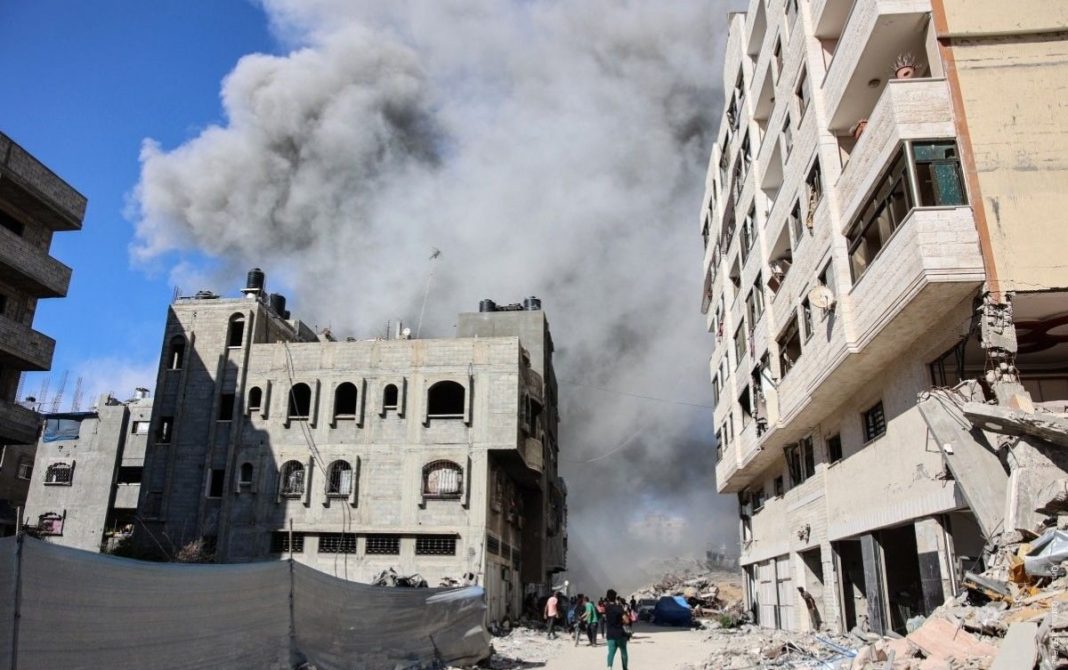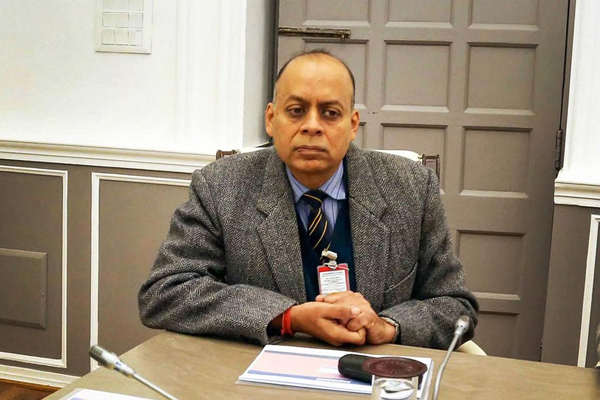
United Nations, May 14: The United Nations’ top humanitarian official blasted Israel on Tuesday for “deliberately and unashamedly” imposing inhumane conditions on Palestinians, including the risk of famine — one of the strongest condemnations by a high-ranking U.N. official during the war in Gaza.

Tom Fletcher, head of the U.N. Office for the Coordination of Humanitarian Affairs, briefed members of the Security Council, describing this work as a “grim undertaking” since Israel began blocking all humanitarian aid from entering Gaza more than 10 weeks ago. He went as far as saying that the council must “act now” to “prevent genocide.” Israel vehemently denied that is taking place.
“I ask you to reflect — for a moment — on what action we will tell future generations we each took to stop the 21st century atrocity to which we bear daily witness in Gaza,” said Fletcher, a longtime British diplomat who took up the U.N. post in November. “It is a question we will hear, sometimes incredulous, sometimes furious — but always there — for the rest of our lives.”
In response to Fletcher’s remarks, the Israeli mission to the U.N. said that “Israel will not accept a humanitarian mechanism that props up the Hamas terror organization that butchered our people in their homes and communities.” Before the blockade, the U.N. and other international aid agencies handled moving aid into the enclave.
The U.N. World Food Program’s director for Gaza, Antoine Renard, told The Associated Press that a quarter of Gaza’s population is at risk of famine. That’s despite all the food needed to feed the territory’s population sitting in warehouses in Israel, Egypt, and Jordan — and most of it is not even 25 miles (40 kilometers) away, he said.
Renard said WFP warehouses in Gaza are empty, and the agency has gone from providing meals for 1 million people at the end of April to producing only 250,000 meals daily. The meals they can serve are “meaningless, compared to people’s requirements,” he said.

“Soon, we’re going to speak about the fact that people don’t even have access to a meal,” Renard warned. “Is that where we need to go to actually raise the alarm? It’s now that we need to act.”
The warnings come after food security experts said Monday that Gaza will likely fall into famine if Israel doesn’t lift its blockade and stop its military campaign. Nearly half a million Palestinians are facing possible starvation, living in “catastrophic” levels of hunger, and 1 million others can barely get enough food, according to findings by the Integrated Food Security Phase Classification, a leading international authority on the severity of hunger crises. In January 2024, the International Court of Justice, the U.N.’s top court, ordered Israel to do all it can to prevent death, destruction, and any acts of genocide in Gaza.
The alarm comes after the AP obtained a proposal from a newly created group backed by the U.S., the Gaza Humanitarian Foundation, to implement a new aid distribution system based on plans similar to those designed by Israel. The U.N. and aid groups have rejected Israel’s moves to control aid distribution.
“It is a cynical sideshow. A deliberate distraction. A fig leaf for further violence and displacement,” Fletcher said Tuesday about the proposal.
When asked Tuesday whether the U.S. supports aid quickly entering Gaza, a spokesperson for the State Department said he would not speak for the foundation, while repeating Israeli rhetoric that Hamas “bears responsibility” for the humanitarian conditions in Gaza. It’s a claim that aid officials have continuously disputed.
“I will reiterate that we are supportive of creative solutions to get aid in there, but also in a way that the aid is not falling into the hands of Hamas, that it actually reaches the people that need it,” deputy spokesman Tommy Pigott told reporters. (AP)





